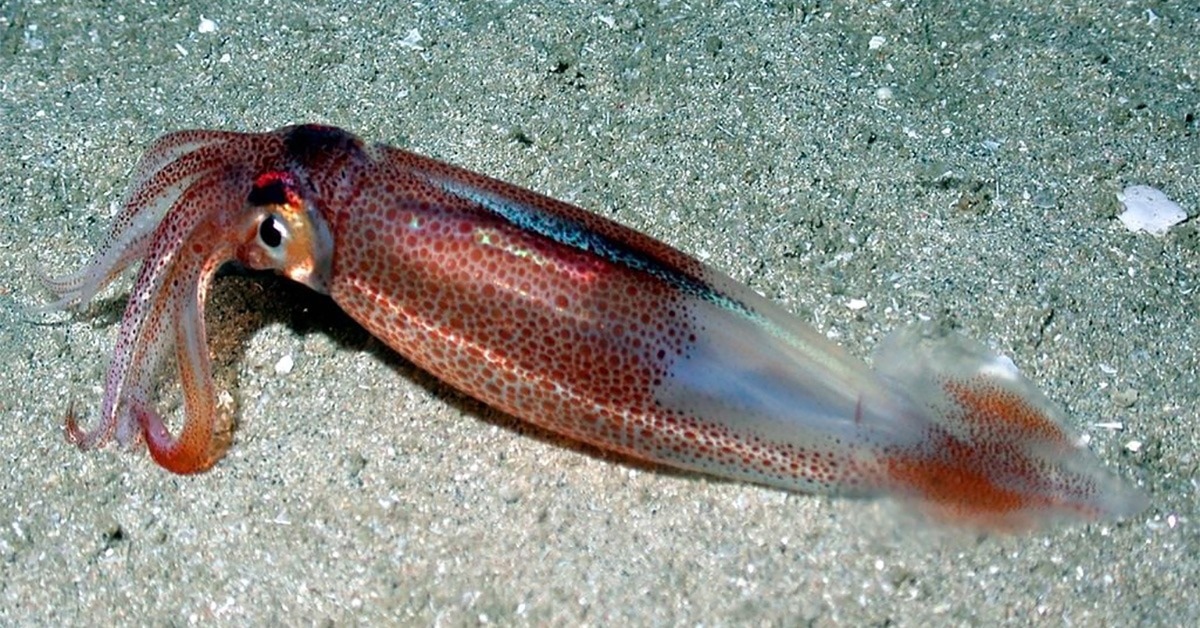Octopuses, cuttlefish, and squid are members of the diverse family of marine creatures known as cephalopods. They can be found in every ocean, from warm tropical seas that are shallow to cold, abysmal depths.
 Doryteuthis opalescens, otherwise known as market squid, helped UC San Diego researchers discover the animals’ ability to recode RNA in cells to improve their functioning in different water temperatures. Image Credit: UC San Diego/Sea Grant California.
Doryteuthis opalescens, otherwise known as market squid, helped UC San Diego researchers discover the animals’ ability to recode RNA in cells to improve their functioning in different water temperatures. Image Credit: UC San Diego/Sea Grant California.
The capacity of at least some cephalopods to recode protein motors within cells to adjust “on the fly” to varied water temperatures is even more remarkable, claim two researchers from the University of California, San Diego, in a recent study.
In the study that was published on June 8th, 2023 in the journal Cell, first author Kavita J. Rangan, Ph.D., a postdoctoral researcher in the lab of senior author Samara L. Reck-Peterson, Ph.D., a professor in the departments of Cellular and Molecular Medicine at UC San Diego School of Medicine and Cell and Developmental Biology at UC San Diego and a Howard Hughes Medical Institute Investigator demonstrate how opalescent inshore squid (Doryteuthis opalescens) use RNA recoding to modify amino acids at the protein level, increasing the operation of molecular motors that perform a variety of activities within cells in cooler waters.
RNA recoding enables organisms to modify genetic information from the genomic blueprint to produce new proteins. The technique is uncommon in humans but widespread in soft-bodied cephalopods like D. opalescens, which perform seasonal spawning migrations along the San Diego coast.
Cephalopods like D. opalescens are remarkable for their large nervous systems, body innovations and complex behaviors and their extensive use of RNA recoding has raised many questions about how this process might be involved in responding to environmental cues like temperature.”
Kavita J. Rangan, Ph.D., Study First Author and Postdoctoral Researcher, School of Medicine and Cell and Developmental Biology, University of California San Diego
Rangan and Reck-Peterson examined alterations in a pair of proteins in squid cells that function as molecular motors moving a range of intracellular cargo along cellular highways known as microtubules.
Kinesin and dynein, two molecular motor proteins essential for movement throughout all cells, including neurons, were the focus of the researchers’ attention. Neurodegenerative diseases have been related to mutations in both motors in humans.
Rangan discovered that when animals encountered cooler ocean water temperatures, their recoding of kinesin increased. He made this discovery while working with live squid hatchlings at Scripps Institution of Oceanography. Rangan then used biochemistry and recombinant DNA technologies to generate recoded kinesin proteins.
The kinesin motors performed better at low temperatures; she discovered this after measuring the motion of individual motor molecules using innovative light microscopy.
According to the research, squid can adapt their proteome (an organism’s whole complement of proteins) on the fly in response to variations in ocean temperature.
The work suggests that squid can tune their proteome (an organism’s entire complement of proteins) on the fly in response to changes in ocean temperature. One can speculate that this allows these marine ectotherms—animals that depend on external sources of body heat—to survive and thrive in a broad range of ocean temperatures.”
Samara L. Reck-Peterson, Ph.D., Study Senior Author and Professor, Departments of Cellular and Molecular Medicine, School of Medicine and Cell and Developmental Biology, University of California San Diego
The researchers also discovered that RNA recoding differed amongst tissues, leading to the creation of new kinesin variants with unique movement characteristics.
Reck-Peterson added, “This work supports the idea that recoding in cephalopods is important for dynamically tuning protein function to support physiological needs and acclimate to changing environmental conditions. These animals are taking a completely unique approach to adapting to their surroundings.”
The results, according to Rangan, also imply that the squid “editome” could be a useful tool for identifying areas of molecules that are flexible or changeable. She is now creating a database that has the complete squid editome for various ocean conditions.
Rangan stated, “In highly conserved proteins, like kinesin and dynein, cephalopod recoding sites can point to overlooked residues of functional significance and this has broader implications for understanding basic protein function as well as for engineering proteins with specific functions. Cephalopods may be able to show us where to look and what changes to make.”
Source:
Journal reference:
Rangan, K. J., et al. (2023). RNA recoding in cephalopods tailors microtubule motor protein function. Cell. doi.org/10.1016/j.cell.2023.04.032